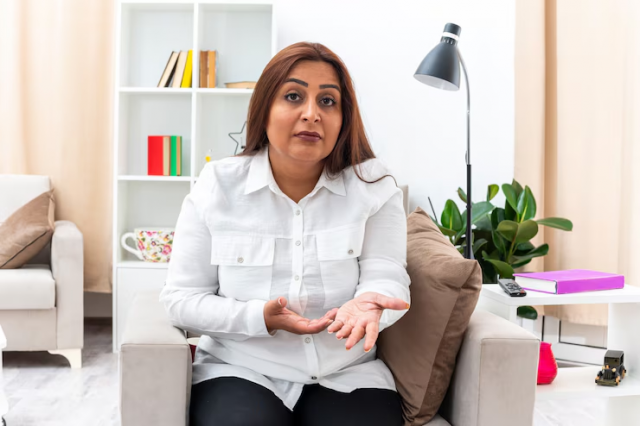Life can get overwhelming sometimes. Maybe you're feeling stuck, anxious, or just not like yourself lately. Maybe things that used to feel easy now feel like a struggle. You're not alone in this. Many people share this sentiment, but don't know where to turn.
Taking care of your mental health isn't always easy, especially when you're not sure what kind of support you need. That's where therapy can make a real difference. Whether you're dealing with mental health issues like stress, past trauma, relationship struggles, or just a general sense that something's off, talking to a therapist can help you feel heard and supported.
But trying to find a therapist can feel confusing. So many options, so many questions. Where do you even begin? This guide is designed to simplify that process. If you've been thinking about starting therapy but feel unsure or nervous about the first step, this is for you. It's okay not to have it all figured out. The important thing is you’re looking, and that's a brave place to start.
What Is Therapy and Who Is It For?
Therapy is a safe space where you can discuss your life with a trained professional, including various life changes and challenges. It's not only for severe mental health conditions. Many people go for psychotherapy or therapy when they're feeling stressed, stuck, or just not themselves.
You don't need a diagnosis or a significant problem to receive support. Therapy can help with day-to-day struggles, relationships, anxiety, or even the need to understand yourself better. It's a step towards healing and clarity.
In India, therapy is offered in various forms, including one-on-one sessions, group discussions, and family counselling. What matters is finding something that feels right for you.
Types of Mental Health Professionals Available in India
How to find a great therapist? India has many professionals working in mental health care, including medical doctors, psychologists, psychiatrists, and counsellors. Each one has a special role in helping with mental health or addressing various issues.
However, there's still a large treatment gap about 83% of people with mental health conditions in India don't receive the help they need. This shows how important it is to take that first step and find the right support.
Psychologists, Psychiatrists, and Counsellors Explained
Mental health professionals in India can be put into three main groups. These include psychologists, psychiatrists, psychotherapists, and counsellors. Each group helps people in its own way when it comes to mental health.
| Professional | Qualifications | What They Do | Prescribing Medication? |
| Psychologist | MA/MSc/PhD in Psychology | Talk therapy, assessments | No |
| Psychiatrist | MBBS + MD in Psychiatry | Clinical treatment | Yes |
| Counsellor | Diploma/Master's in Counselling | Guidance and strategies | No |
Beginner's Guide to Finding a Therapist
How to find a therapist in India? Starting therapy can feel confusing, especially if it's your first time. But once you know what to look for, the process becomes easier. The key is to find someone who fits your needs and feels easy to talk to.
In India, you can find a therapist online or by asking people you trust for medical advice. Both options can provide a good starting point. The goal is to feel supported and comfortable as you take that first step.
What You'll Need to Get Started
Before you begin, it helps to have a few things clear:
- Budget: Therapy costs can vary depending on your location and the therapist you choose, so it's essential to check with your insurance company for specific details. Setting a budget helps narrow down your options.
- Insurance: If you have health insurance, check if it covers mental health services. Some plans offer a list of covered therapists.
- Preferences: Think about what matters to you. Would you prefer group sessions or one-on-one? Is it important to talk to someone of a specific gender or background? These details matter when choosing someone you can open up to.
Step 1: Know What You're Looking For
Start by considering why you want therapy and what motivates you to find a local therapist. It could be to manage stress, deal with family issues, heal from past events, or gain a better understanding of yourself. Having a clear idea of what you need can make your sessions more helpful.
There are also different types of therapy. Some common types focus on thoughts and behaviour, while others explore emotions or relationships. You don't need to know all the terms; what matters is finding someone who understands your goals.
Step 2: Do a Bit of Research
Once you're clear on what you need, let’s start finding a good therapist. Use trusted online platforms, mental health directories, or local listings in cities like Mumbai, Bengaluru, or Delhi.
When shortlisting, consider:
- Are they qualified and licensed?
- Do they have experience with the issues you're facing?
- Are their timings and location convenient for you?
- Do they offer online sessions if travelling is difficult?
The aim is to find someone who feels like a good fit for your life, not just your schedule.
Step 3: Reach Out and Ask Questions
Once you have a few names, don't be afraid to reach out. A brief call or message can reveal a lot about how they work and whether you feel comfortable.
You can ask things like:
- Have you worked with people facing similar challenges?
- What kind of therapy approach do you use?
- What are your session fees, and do you offer a sliding scale pricing option?
- Do you offer online sessions or flexible hours?
This first interaction is a great way to see if you'll feel at ease with them. Trust your gut; It matters!
Step 4: Get Ready for Your First Session
Before your first session, take a little time to prepare. Think about:
- What would you like to talk about
- Any major life events or challenges you've been through
- Questions about how therapy works
You don't have to share everything at once. Just being open and honest is a great start. Some people also like to write things down to bring with them, especially if they're nervous or unsure where to begin.
It's okay to feel a little nervous. Therapy is a space just for you, and the first step is often the hardest part. But once you begin, you might find it's one of the best decisions you've made for your well-being.
Conclusion
Finding the right therapist can make a big difference in your journey toward healing and personal growth. When you're clear about what you need, what kind of support you're looking for, and the number of sessions that fit your budget, making that first appointment becomes easier to choose someone who feels right for you. You can start by asking people you trust or checking trusted directories for a referral to a social worker.
Platforms like Live Positively also offer helpful articles and insights that can support your mental wellness journey. What matters most is taking that first step. Your first session might feel like a small moment, but it's the beginning of something meaningful. With the proper support, you can begin to develop healthier ways to cope and move forward in life.
Frequently Asked Questions
What is the average cost of therapy in India?
In India, the cost of therapy can vary significantly. It can depend on where you live, the type of therapist you consult, and the type of session you receive. Most of these sessions cost between ₹500 and ₹3000. It's a good idea to check if your health insurance covers mental health care. This can help you pay for it.
Can I find a therapist who speaks my native language?
Yes, many therapists give help in more than one language. You can search for them on the internet by specifying the language you want. You can also call therapy offices near you and ask if there is someone who speaks your own language. This will help you feel more at ease and make it easier to discuss things with your therapist.
Is online therapy effective and available in India?
Yes, online therapy works well for many people in India. It provides a simple way to communicate with trained experts from the comfort of your own home about various issues, including behavioural challenges. There are various options available on many websites, allowing you to find the type of help that best suits your needs. This works even if you live far away from big cities, as you can still get good support.
What if I don't feel comfortable with my therapist?
If you don't feel comfortable with your therapist, you should discuss your concerns. You can speak to your therapist about your worries, or you can try to find a different one. It is very important to have a strong relationship with your therapist for the treatment to work. You should find someone who helps you feel safe and understood.






